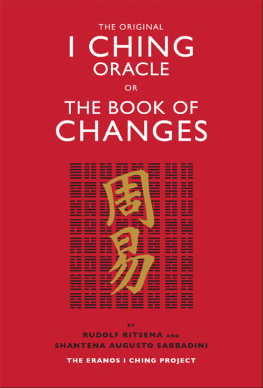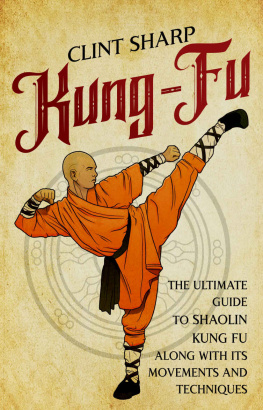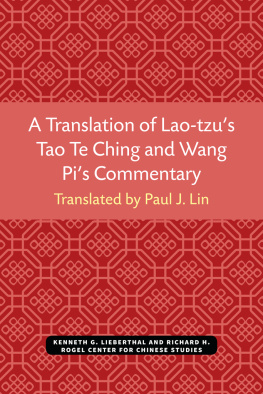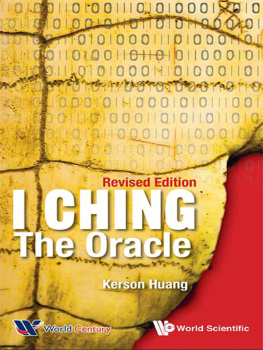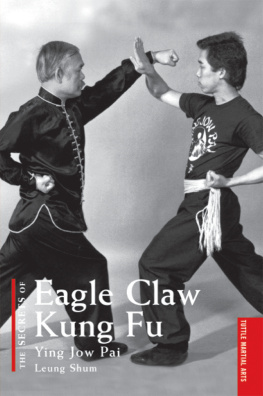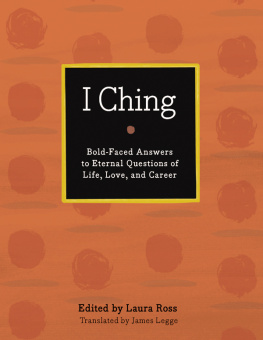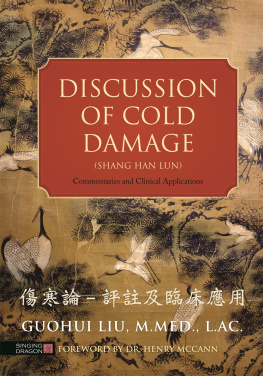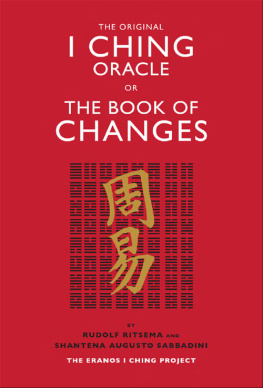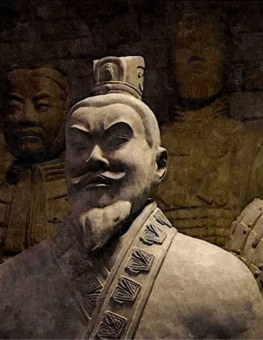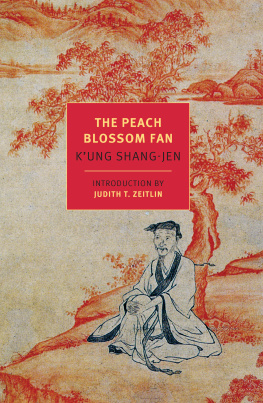Heshang Gong - The Ho-Shang Kung Commentary on Lao Tzu’s Tao Te Ching (Revised Edition)
Here you can read online Heshang Gong - The Ho-Shang Kung Commentary on Lao Tzu’s Tao Te Ching (Revised Edition) full text of the book (entire story) in english for free. Download pdf and epub, get meaning, cover and reviews about this ebook. year: 2015, publisher: Center Ring Publishing, genre: Religion. Description of the work, (preface) as well as reviews are available. Best literature library LitArk.com created for fans of good reading and offers a wide selection of genres:
Romance novel
Science fiction
Adventure
Detective
Science
History
Home and family
Prose
Art
Politics
Computer
Non-fiction
Religion
Business
Children
Humor
Choose a favorite category and find really read worthwhile books. Enjoy immersion in the world of imagination, feel the emotions of the characters or learn something new for yourself, make an fascinating discovery.

- Book:The Ho-Shang Kung Commentary on Lao Tzu’s Tao Te Ching (Revised Edition)
- Author:
- Publisher:Center Ring Publishing
- Genre:
- Year:2015
- Rating:4 / 5
- Favourites:Add to favourites
- Your mark:
- 80
- 1
- 2
- 3
- 4
- 5
The Ho-Shang Kung Commentary on Lao Tzu’s Tao Te Ching (Revised Edition): summary, description and annotation
We offer to read an annotation, description, summary or preface (depends on what the author of the book "The Ho-Shang Kung Commentary on Lao Tzu’s Tao Te Ching (Revised Edition)" wrote himself). If you haven't found the necessary information about the book — write in the comments, we will try to find it.
Heshang Gong: author's other books
Who wrote The Ho-Shang Kung Commentary on Lao Tzu’s Tao Te Ching (Revised Edition)? Find out the surname, the name of the author of the book and a list of all author's works by series.
The Ho-Shang Kung Commentary on Lao Tzu’s Tao Te Ching (Revised Edition) — read online for free the complete book (whole text) full work
Below is the text of the book, divided by pages. System saving the place of the last page read, allows you to conveniently read the book "The Ho-Shang Kung Commentary on Lao Tzu’s Tao Te Ching (Revised Edition)" online for free, without having to search again every time where you left off. Put a bookmark, and you can go to the page where you finished reading at any time.
Font size:
Interval:
Bookmark:
"Dan has really put a great tool into a lot of people's hands. Heshang Gong has been living in a cave as far as anyone interested in Laozi has been concerned. Now he's out. And the introduction as well as the textual aids for the non-Chinese reading reader at the back really make this a major contribution to the field, especially to those readers leery of the scholarly gauntlet."
- Red Pine (Bill Porter), translator of Lao-Tzu's Taoteching: with Selected Commentaries of the Past 2000 Years
Reid has translated the beguiling verse of this ancient text within the framework of the 2,000-year-old Ho-Shang Kung Commentary, an obscure but authentic commentary that clarifies many points which have baffled both Chinese scholars and Western translators.
Translating the original words of the Tao Teh Ching line by line, he follows each line with his translation of the matching commentary from Ho-Shang Kung ("The Riverside Sage"). This format provides the reader with new perspectives on this multi-faceted classic, with The Riverside Sage serving as the reader's knowing guide.
Like the great English translator Arthur Waley, Dan G. Reid taught himself how to read classical Chinese, so he brings his own viewpoint to his work, not the views of a particular "school of thought" in Sinology. Translating the Tao Teh Ching has long been regarded as the ultimate litmus test for a translator of Chinese. Reid has passed the test with flying colors."
- Daniel P. Reid (no relation), translator of My Journey in Mystic China (Chinese memoirs of the late writer & translator John Blofeld), author of The Tao of Health, Sex, & Longevity , and The Tao of Detox
-
"Wonderful work and translation. I am growing spiritually from reading it!"
- Dr. Michael Saso, Professor Emeritus of Religion, University of Hawai'I, Ph.D Classical Chinese, Author of Teachings of Taoist Master Chuang
Ho-Shang Kung lived in todays Langya area of Shandong Province ( ). He was an accomplished Taoist alchemy practitioner and it is said that he became an immortal on Tiantai mountain nowadays Rhi-Zhao county, Shandong Province.
His commentary on the Tao Te Ching ( ) naturally carries a deep understanding of Taoist meditation, and differs greatly from that of other commentators who tried to explain the Tao Te Ching only philosophically. Written at a time when there were almost no related commentaries, it has long been the most popular. To translate it by following the exact meaning is not an easy task, but Dan G. Reid is well capable of such a task. By reading this commentary, readers can gain additional perspective and understanding of this ancient classic.
- Master Hu Xuezhi, author of Revealing the Tao Te Ching , and Discourse on Chuang Tzu . Master Hu teaches Taoist meditation and philosophy on Wudang Mountain
I found this book to be very helpful in bringing a deeper understanding of Lao Tzu's work and of how it has been understood in ancient times This volume provides a wonderful tool to delve into the text in a very deep way."
- Review by Solala Towler (author of Practicing the Tao Te Ching ) in The Empty Vessel: The journal of Taoist philosophy and practice, Winter 2017 issue
In my own use of the DDJ as a Daoist practice scripture it was very important to clearly see how this DDJ commentary is a guide for key Daoist concepts like emptiness, wuwei, stillness, speaking few words, yielding, the quiet dragon, and more.
As a Daoist priest and founder of a Daoist lineage, American Dragon Gate Lineage, I highly recommend this translation by Reid and have actually made it required study for my priests-in-training.
- Shifu Michael J. Rinaldini, Daoist Abbot and founder of the American Dragon Gate Lineage of Quanzhen Daoism. Author of A Daoist Practice Journal: Come Laugh With Me ; and A Daoist Practice Journal, Book 2: Circle Walking, Qigong & Daoist Cultivation
The Ho-Shang Kung
Commentary
on
Lao Tzus
Tao Te Ching
by Ho-Shang Kung, and Lao Tzu
Revised Edition
Translated by Dan G. Reid

Also available from Dan G. Reid:
The Thread of Dao:
Unraveling Early Daoist Oral Traditions in Guan Zis
Purifying the Heart-Mind (Bai Xin),
Art of the Heart-Mind (Xin Shu I & II),
and Internal Cultivation (Nei Ye)
Center Ring Publishing
Montreal, QC, Canada
www.facebook.com/HoShangKung
Copyright 2015 Dan G. Reid
All rights reserved.
Cover art: Inquiring of the Dao, by Dai Jin (1388-1462 CE). A depiction of the Yellow Emperor going out to meet the Daoist sage Guangchengzi in the Kongtong Mountains, the story of which appears in The Chuang Tzu, chapter 11.
All rights reserved. No part of this book may be reproduced in any form or by any means, electronic or mechanical, including photocopying, recording, or by any information storage and retrieval system, without permission in writing from the author.
The Ho-Shang Kung Commentary on Lao Tzus Tao Te Ching, Revised Edition, translated by Dan G. Reid
Electronic Book
ISBN10: 0-9949781-3-8
ISBN13: 978-0-9949781-3-4
Thank you to the many teachers, scholars, priests, monks, and practitioners who have shared insights into Daoism and Classical Chinese in online forums. Your consideration for nameless strangers has led to the development of this book. Were it not for your thoughtful input, correspondence, and fellowship, I would not have had the knowledge or inspiration to put this translation out into the world.
Distant waves, each page
Riding winds of ancient words
Back to the ocean
Please note that a combination of pinyin and Wade-Giles romanization will be used within this book so as to render Chinese names and terms in their most recognizable forms. Pinyin will be used in most cases, with the exception of the names Lao Tzu, and Chuang Tzu , which will appear in Wade-Giles romanization. The following names and terms are interchangeable variants of Wade-Giles and pinyin spelling, respectively: Tao/Dao, Te/De, Ching/Jing, Ho-Shang Kung/Heshang Gong.
Very little is known about the life of Heshang Gong. His reputation is that of a reclusive hermit, and his name is only known as the epithet Riverside Elder ( ; Wade-Giles romanization: Ho Shang Kung; pinyin romanization: Heshang Gong).
Heshang Gongs insights into Daoist wisdom, history, cosmogony, and meditative practices, have been an essential aid to understanding the meaning, applicability, and cultural context of the Dao De Jing for approximately 2000 years. He was the first to explain, in written form, its many paradoxical idioms and place them in context of the time and culture in which they were written. Every subsequent commentary, re-editing, and translation of the Dao De Jing has absorbed some degree of influence from his work.
While Heshang Gongs contributions to linguistic preservation have been appreciated for millennia, his early articulation of the connections between Lao Tzus verses and the Daoist meditative practices later known as Nei Dan is not so well acknowledged.
Nei Dan, or Internal Alchemy, seeks to transcend the limits of physical existence through the cultivation of the three treasures of vital essence (ching/jing), energy-breath (chi/qi), and spirit (shen). This is done, in part, by merging ones pure nature (hsing/xing) with destiny-life-force (ming). Such concepts can be found in earlier Chinese texts from various schools, including the Chuang Tzu, but are not accompanied by clear guidance as to the methods through which they can be cultivated. The cultivation of xing and ming later became a central focus in cryptic and detailed Nei Dan manuals, culminating in the teachings of the Quan Zhen (Complete Reality) patriarchs (circa 8 th to 11 th century CE), to whom over 80 religious Daoist sects are traced. While some of these manuals provide rather specific and detailed energetic maneuvers, they more commonly explain the processes of transformation which they say will naturally follow a prolonged clarity of the heart and mind.
Font size:
Interval:
Bookmark:
Similar books «The Ho-Shang Kung Commentary on Lao Tzu’s Tao Te Ching (Revised Edition)»
Look at similar books to The Ho-Shang Kung Commentary on Lao Tzu’s Tao Te Ching (Revised Edition). We have selected literature similar in name and meaning in the hope of providing readers with more options to find new, interesting, not yet read works.
Discussion, reviews of the book The Ho-Shang Kung Commentary on Lao Tzu’s Tao Te Ching (Revised Edition) and just readers' own opinions. Leave your comments, write what you think about the work, its meaning or the main characters. Specify what exactly you liked and what you didn't like, and why you think so.

